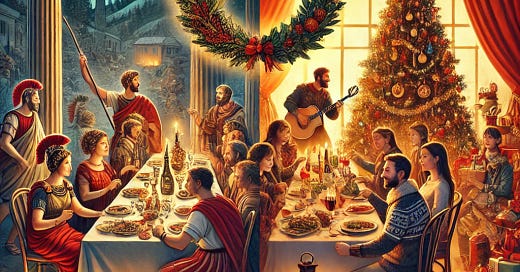How a Party Uncovered the Forgotten Roots of Christmas
The Roman Influence Behind Holiday Traditions
Introduction
Last week, I attended a Christmas celebration where we played a festive game of Jeopardy. One of the questions asked was, “Which empire fell in 1453?”
Initially, many of us dismissed the Roman Empire as an option—600 years felt far too recent for such a historical collapse. However, to our surprise, the correct answer was indeed the Roman Empire.
This revelation struck me because when we think of the Roman Empire, we often picture a distant past—centuries upon centuries ago. While that’s technically true, those centuries aren’t as far removed as they seem. The Roman Empire fell in 1453, and just over 300 years later, the United States of America was born.
It made me realize that we are not as far removed from history as we often believe.
The Roman Empire may have fallen 600 years ago, but its influence persists today. One tradition that still echoes ancient Rome is the celebration of Christmas.
Let’s take a closer look at how this holiday reflects its Roman roots.
Keep reading with a 7-day free trial
Subscribe to Unorthodoxy to keep reading this post and get 7 days of free access to the full post archives.





